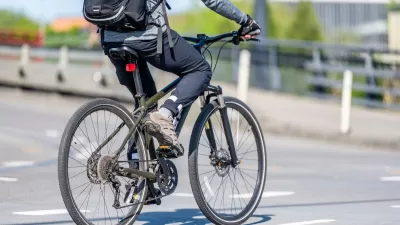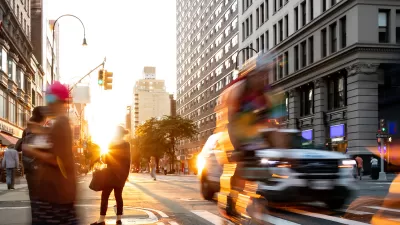Cyclist deaths are rising across the U.S., but in most cities and states, drivers are rarely punished. As more people embrace cycling and more cities encourage it; it's time our laws, infrastructure, and attitudes are reformed to make cycling safer.
According to Daniel Duane, a contributing editor for Men’s Journal, "we’re at a scary cultural crossroads on the whole car/bike thing."
"The American Medical Association endorses National Bike to Work Day, and more than 850,000 people commute on a bicycle, according to the League of American Bicyclists," he notes. "But the social and legal culture of the American road, not to mention the road itself, hasn’t caught up. Laws in most states do give bicycles full access to the road, but very few roads are designed to accommodate bicycles, and the speed and mass differentials — bikes sometimes slow traffic, only cyclists have much to fear from a crash — make sharing the road difficult to absorb at an emotional level."
Furthermore, those who kill cyclists often face few consequences. "When two cars crash, everybody agrees that one of the two drivers may well be to blame; cops consider it their job to gather evidence toward that determination. But when a car hits a bike, it’s like there’s a collective cultural impulse to say, 'Oh, well, accidents happen.'"
Though he advocates for better bike infrastructure and hardened penalties for at-fault drivers, Duane argues that "the most important changes, with the potential to save the most lives, are the ones we can make in our attitudes."
FULL STORY: Is It O.K. to Kill Cyclists?

Maui's Vacation Rental Debate Turns Ugly
Verbal attacks, misinformation campaigns and fistfights plague a high-stakes debate to convert thousands of vacation rentals into long-term housing.

Planetizen Federal Action Tracker
A weekly monitor of how Trump’s orders and actions are impacting planners and planning in America.

Chicago’s Ghost Rails
Just beneath the surface of the modern city lie the remnants of its expansive early 20th-century streetcar system.

Bend, Oregon Zoning Reforms Prioritize Small-Scale Housing
The city altered its zoning code to allow multi-family housing and eliminated parking mandates citywide.

Amtrak Cutting Jobs, Funding to High-Speed Rail
The agency plans to cut 10 percent of its workforce and has confirmed it will not fund new high-speed rail projects.

LA Denies Basic Services to Unhoused Residents
The city has repeatedly failed to respond to requests for trash pickup at encampment sites, and eliminated a program that provided mobile showers and toilets.
Urban Design for Planners 1: Software Tools
This six-course series explores essential urban design concepts using open source software and equips planners with the tools they need to participate fully in the urban design process.
Planning for Universal Design
Learn the tools for implementing Universal Design in planning regulations.
planning NEXT
Appalachian Highlands Housing Partners
Mpact (founded as Rail~Volution)
City of Camden Redevelopment Agency
City of Astoria
City of Portland
City of Laramie




























